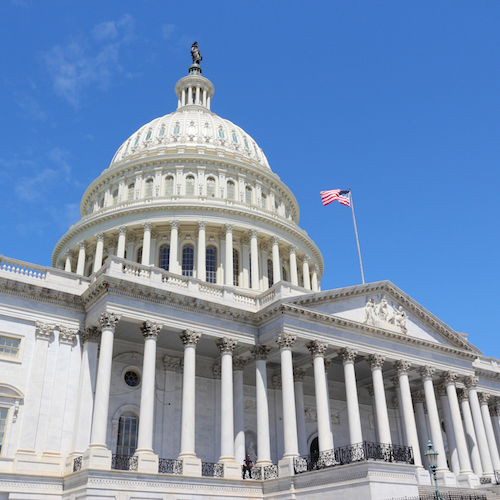Economy
Failure to Raise Debt Ceiling Could Cost US Top Debt Rating -- Perhaps Forever

Published:
Last Updated:

The federal government is running up against the congressionally mandated U.S. debt ceiling of $19.81 trillion. Unless the ceiling is raised, the federal government could be unable to borrow more money, even to pay interest on the money it has already borrowed. If that happens, the United States would be in default.
In a report issued Tuesday, ratings agency Moody’s Investors Service reiterated its stable outlook and Aaa rating on U.S. sovereign debt, saying it fully expects the debt ceiling to be raised.
However, in the event that Congress fails to raise the limit, all bets are off.
Last March the Congress ended the most recent suspension of the debt ceiling, allowing the U.S. Treasury Department to use special accounting rules (called “extraordinary measures”) to continue borrowing the funds it needed to continue operations. The Congressional Budget Office (CBO) said last month that it expects the extraordinary measures to expire in the first half of October. If the federal government is unable fully to meet its obligations to pay, either by failing to pay entirely or to delay (prioritize) payments, the United States would be in default on its loans.
Moody’s notes:
Should the debt ceiling not be raised by the time extraordinary measures are exhausted, Moody’s assumes that interest payments will be prioritized. Relatively small interest payments are due on 15 and 31 October. A larger interest payment of approximately $36 billion is due on 15 November, equal to 16% of that month’s projected revenues.
If the U.S. misses an interest payment, Moody’s said it would consider that a default, even though the U.S. credit rating could remain close to the current Aaa. Moody’s said that the loss to investors if the U.S. defaults would be “very small,” but:
An upgrade back to Aaa would be unlikely while the institution of the debt ceiling, and the political environment that gave rise to the missed payment, remained in place.
Fitch Ratings warned late last month of the effects from either a default or prioritization of U.S. debt payments.
Want retirement to come a few years earlier than you’d planned? Or are you ready to retire now, but want an extra set of eyes on your finances?
Now you can speak with up to 3 financial experts in your area for FREE. By simply clicking here you can begin to match with financial professionals who can help you build your plan to retire early. And the best part? The first conversation with them is free.
Click here to match with up to 3 financial pros who would be excited to help you make financial decisions.
Have questions about retirement or personal finance? Email us at [email protected]!
By emailing your questions to 24/7 Wall St., you agree to have them published anonymously on a673b.bigscoots-temp.com.
By submitting your story, you understand and agree that we may use your story, or versions of it, in all media and platforms, including via third parties.
Thank you for reading! Have some feedback for us?
Contact the 24/7 Wall St. editorial team.